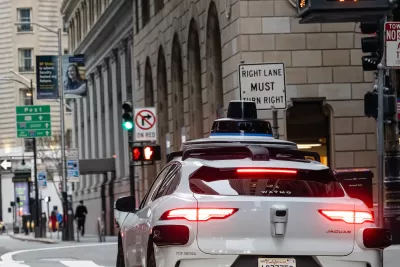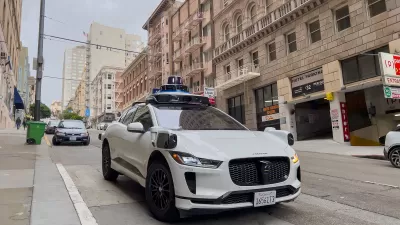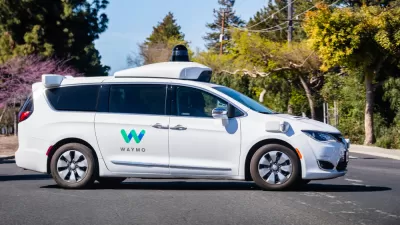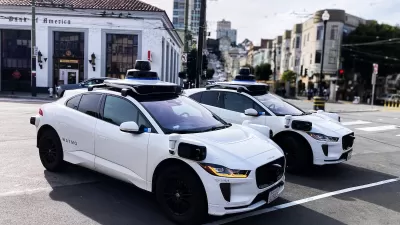Waymo’s autonomous vehicles can begin picking up passengers in Los Angeles and San Francisco in spite of opposition from local officials.

Despite local concerns and recent federal investigations into the safety of autonomous cars, the Consumer Protection and Enforcement Division of the California Public Utilities Commission gave Waymo the go-ahead to operate autonomous taxis in Los Angeles and San Francisco.
In an article in Smart Cities Dive, Dan Zukowski notes that ‘Waymo, which already operates paid driverless robotaxi service in San Francisco and Phoenix, can begin service in the additional areas immediately following the CPUC’s determination that local officials’ objections do “not state proper grounds for protest.’” Local officials say they want more decision-making power in how and when robotaxis are deployed in their cities. In a letter to the CPUS, Los Angeles Mayor Karen Bass wrote, “local jurisdictions like Los Angeles have had little to no input in AV deployment and are already seeing significant harm and disruption.”
While, according to the company, the crash rate for Waymo vehicles is 85 percent lower than human-operated vehicles, multiple high-profile crashes have drawn concern from city leaders and federal regulators.
Last fall, another autonomous car manufacturer, Cruise, suspended its driverless operations as part of an effort to boost public trust.
FULL STORY: Robotaxi expansion approved in California over local objections

Alabama: Trump Terminates Settlements for Black Communities Harmed By Raw Sewage
Trump deemed the landmark civil rights agreement “illegal DEI and environmental justice policy.”

Study: Maui’s Plan to Convert Vacation Rentals to Long-Term Housing Could Cause Nearly $1 Billion Economic Loss
The plan would reduce visitor accommodation by 25% resulting in 1,900 jobs lost.

Why Should We Subsidize Public Transportation?
Many public transit agencies face financial stress due to rising costs, declining fare revenue, and declining subsidies. Transit advocates must provide a strong business case for increasing public transit funding.

Wind Energy on the Rise Despite Federal Policy Reversal
The Trump administration is revoking federal support for renewable energy, but demand for new projects continues unabated.

Passengers Flock to Caltrain After Electrification
The new electric trains are running faster and more reliably, leading to strong ridership growth on the Bay Area rail system.

Texas Churches Rally Behind ‘Yes in God’s Back Yard’ Legislation
Religious leaders want the state to reduce zoning regulations to streamline leasing church-owned land to housing developers.
Urban Design for Planners 1: Software Tools
This six-course series explores essential urban design concepts using open source software and equips planners with the tools they need to participate fully in the urban design process.
Planning for Universal Design
Learn the tools for implementing Universal Design in planning regulations.
Caltrans
Smith Gee Studio
Institute for Housing and Urban Development Studies (IHS)
City of Grandview
Harvard GSD Executive Education
Toledo-Lucas County Plan Commissions
Salt Lake City
NYU Wagner Graduate School of Public Service





























